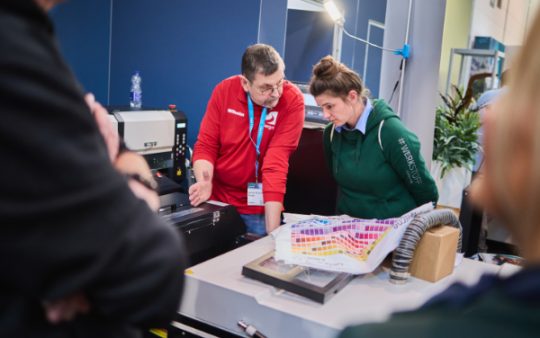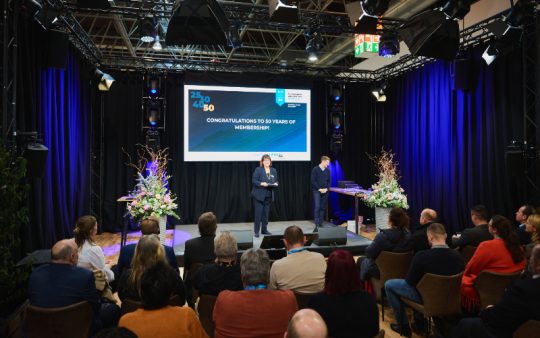A new workwearlinie for Europe: ‘Timberland Pro’ focuses on sustainability

Published on 18.12.2019
‘Timberland Pro’ has already been available as a premium brand for sustainable workwear In the USA and Canada for 20 years. The VF Group, to which Timberland has belonged since 2011, has now developed its own line for the demanding European market. The focus here lies on sustainability, smart technologies and the typical Timberland style.
The workwear features numerous technical attributes that enhance job safety, including a specially developed outsole technology delivering improved grip and composite safety toe caps with carbon nano-cavities to reduce weight and provide greater comfort. The clothing is made of sturdy fabric that has been specially finished to cope with UV radiation, moisture and oil and yet still be breathable.
What is particularly interesting for the European market, however, is the sustainable approach the brand has taken. The VF Group and Timberland have followed a comprehensive sustainable strategy for several years now. Wherever possible, sustainable and recycled resources have been used in producing the new Timberland collection. This means that materials used in clothing and shoes consist of at least 50% recycled PET which has been sourced from old plastic bottles. The company has calculated that almost 350m 0.5 l plastic bottles have been turned into uppers, shoelaces and linings since December 2018.
In addition, the VF programme ‘Chem IQ’ regulates the substitution of harmful chemicals with low-emission alternatives. So far, the project has meant the replacement of 510 tonnes of chemicals with less harmful products. It is intended to completely eradicate the use of PFCs (perfluorinated compounds) by 2025. PFCs have excellent water, oil and dirt-repellent properties but are not biodegradable.
The company has also introduced its own guidelines regulating the use of materials involving animal products or timber. 100 percent of all their down products will be RDS-certified (Responsible Down Standard) by the end of 2019. In addition, all leather used for shoes should be exclusively sourced from tanneries that have been approved by the Leather Working Group (LWG) by 2021. Such tanneries are not allowed to use any potentially critical substances and have to adhere to restrictions regarding water and energy consumption as well as maintain certain standards regarding work safety. All production plants also have to provide fair working conditions.
It may still be a long way off, but the company’s declared goal is to establish regenerative production cycles by 2030 for the production of shoes and clothing. This will also include measures such as ‘buying second-hand’ and ‘renting instead of buying’. VF has also already set up a take-back programme and has thus far been able to reclaim more than 34,000 kg clothing and shoes for use in producing new workwear.
Image: Timberland Pro














